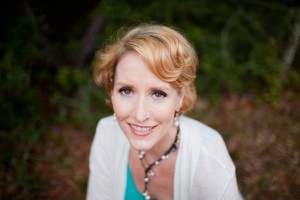My best friend reminded me the other day that I have chosen an artist’s career. Her words hit me over the head like a metal bucket, with all the accompanying reverberations one might expect.
Wait.
I did?
An artist’s career?
But she’s right. By choosing to become a writer, I chose an artist’s lifestyle.
Sure, yeah, I’m an entrepreneur too, and a coach. In some senses I’m well-diversified. But in the sense we were talking about, it was hardly different. They are unpredictable jobs. The money goes up and down. You don’t know how you’ll be rewarded for any given effort. There’s not an hours for dollars exchange going on, at least not in the predictable way someone with a 40-hours-a-week-plus-benefits job would have.
And honestly? I wouldn’t give it up. I adore working for myself. When people talk about how they can only take so many vacation days a year so they can’t take an extra day off to have a three day weekend, I just look at them with cow eyes. What now?
On the other hand, in some ways I am never off work. Not one day, not ever. Because it’s mine. But it’s also MINE, you dig?
But I digress.
Chuck Wendig wrote this post recently about making the decision to quit writing (or not). He suggested picturing your life five years from now, not writing, and noticing how you feel. Relieved? Maybe that’s a sign to quit. Disappointed? Maybe you should keep going.
But I don’t know.
Maybe I’m deformed or deficient in some way but along with the massive joy I often feel for my writing and the daily deep satisfaction I get from doing it, I also feel burdened by it. Like it’s something I’ve picked up and can never put down again. And sometimes that makes me feel tired, like I want a break. So when I think of not writing in five years, yeah, there’s a part of me that feels relieved. Like I’d be off this self-created hook. But is that so bad? Is that a sign I don’t want it enough? I don’t think so.
Because my real answer to whether or not I would quit writing is “No way, not ever.”
It reminds me a bit of parenting.
Both are “terrible privileges” in a sense. Neither would I give up, not for anything. But they will never ever ever go away. I cannot escape them. Nor do I want to. But some part of me still sometimes longs for those earlier carefree days when I didn’t know what it would be like to have parts of my soul walking around in other small bodies that I made inside my own. Or those days when I could truly be free to do nothing or anything without the need to take care of another being or to put words to the page because if I don’t I start to feel itchy and claustrophobic all at once.
It’s a burden. A privilege. A recipe for angst and joy, all rolled into one.
Do I love it every minute?
No.
Would I give it up?
Absolutely not.
Because in writing I found myself.
And quitting would be giving up on part of me that would lose her home.





 Many people have unfinished writing projects that linger for years, but it’s never too late to finish your book. And the time to get restarted might just be now.
Many people have unfinished writing projects that linger for years, but it’s never too late to finish your book. And the time to get restarted might just be now. Terri Fedonczak has 22 years of parenting experience and is a certified life coach, specializing in parent and teen coaching. After 16 years as a commercial real estate agent, a bout with breast cancer transformed Terri’s life in 2010, making her realize that time with her four girls and patient husband was a much better deal than money and status. It was time to put her mission into action. She left sales and embarked on a journey of spreading the message of girl power for good. When Terri is not writing books, speaking, coaching, or blogging, you can find her paddle boarding on the sparkling waters of Boggy Bayou, knitting to the consternation of her children, who are buried in scarves and hats, or dancing in her kitchen to Motown.
Terri Fedonczak has 22 years of parenting experience and is a certified life coach, specializing in parent and teen coaching. After 16 years as a commercial real estate agent, a bout with breast cancer transformed Terri’s life in 2010, making her realize that time with her four girls and patient husband was a much better deal than money and status. It was time to put her mission into action. She left sales and embarked on a journey of spreading the message of girl power for good. When Terri is not writing books, speaking, coaching, or blogging, you can find her paddle boarding on the sparkling waters of Boggy Bayou, knitting to the consternation of her children, who are buried in scarves and hats, or dancing in her kitchen to Motown.